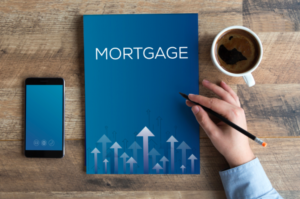 7 things lenders look at when applying for a mortgage
7 things lenders look at when applying for a mortgage
Once you have found your dream home you are then faced with the task of securing a mortgage. To give yourself the best chance of obtaining a mortgage it is worth knowing the factors a lender will look at before agreeing to advance you the mortgage needed to purchase your new home.
1. Deposit
The size of your deposit is a key factor in the amount of mortgage you can obtain. The higher the deposit the more likely you are to secure the mortgage you require as the lender will feel that you will be less likely to default on the mortgage if a sizeable amount of your money is invested as well.
Having a larger deposit will also increase the number of mortgage products available as well as giving you access to better deals. The minimum amount of deposit you will need to obtain a mortgage will be dependent on the lender and the economic factors at the time of your mortgage application. At the time of writing, it is typically 5%-10% of the property value.
A deposit can come from either your own savings, the sale of a previous property, or a gift from a parent or grandparent. In the case of a gifted deposit, the lender will need confirmation that the gift does not have to be repaid. With the exception of a deposit from the proceeds of a house sale, the deposit needs to be available at the time of the buyer making an offer on a property
2. Mortgage amount
The mortgage amount in relation to the property value - known as loan-to-value (LTV) is important when assessing any mortgage application. A low LTV will give a lender confidence that they will be able to get their money back if a borrower defaults on the mortgage and the property has to be repossessed.
3. Employment
Your employment status is important when assessing you for a mortgage. Having regular employment with a regular monthly income is ideal, but lenders do understand that this is not always possible. Being self-employed, a contract worker or working freelance is not an obstacle to obtaining a mortgage as long as you can provide a record of regular income over a period of time. If you fall into any of these categories then you should ensure that you have up-to-date records of income to provide to the lender.
A lender will take income from multiple sources into account as many people have more than one job but getting a second job just to qualify for a mortgage may be discounted by the lender. If you own a business then dividends paid can be included when assessing your income but you may need to provide further information regarding the structure of the company.
4. Income
Your income and that of anybody buying with you is a key factor in assessing your suitability for a mortgage. Any income needs to be regular and provable by either providing payslips or a full set of accounts for the last 3 years. If there are any annual bonuses paid then you will need to confirm the criteria for payment and when they are paid.
If some or all of your income is target related then a lender may take the average income over a period of time to calculate the amount they are prepared to lend on a mortgage.
5. Affordability
Since 2014, lenders have been obliged to ensure you are able to repay your mortgage if interest rates were to rise substantially in the future. Also, lenders will tighten their lending rules in times of economic uncertainty as they need to ensure that borrowers will be able to maintain their mortgage payments in these times.
As well as confirming your income, a lender will also need to know how you spend your money to be confident that you will be able to afford the extra commitment of your new mortgage. To do this a lender will require sight of your bank statements over a few months and will review all your commitments such as credit card repayments, car loan and other regular monthly commitments.
If you are a first-time buyer a lender will also need to be confident that you can afford the extra costs involved in running your own home, such as council tax and utility bills.
6. Credit rating
A lender will want to be confident of your ability to make your mortgage payments every month and one of the key indicators is how you deal with credit repayments now and in the past. All your credit activities over the past few years will be visible on your credit report which will show how many loans and credit cards you have at the moment and how you are currently managing the repayments. This report will also look at how you have dealt with credit in the past and if you have missed any payments or had any county court judgments registered against your name for any debt not paid.
7. Property type
The type of property you intend to purchase is also a factor when applying for a mortgage. If the property is an unusual construction or in poor repair then the lender may carry out further investigations to ensure that the property is suitable security against the mortgage.
Properties of unusual construction can be difficult to sell if you defaulted on the mortgage and a property in poor repair may need some repairs to be carried out immediately. In these situations, a lender may decide to lend you less than you require.
How to increase your chances of getting a mortgage
When applying for a mortgage, preparation is key and listed below are the main actions to take prior to making a mortgage application to increase your chances of getting a mortgage.
Consider using a mortgage broker
Engaging the services of a qualified mortgage broker will not only increase your chances of getting a mortgage but will also provide access to a wider range of mortgage deals and hold your hand through the whole process. Some mortgage brokers charge a fee, however, we have teamed up with online mortgage broker Habito*, who do not charge a fee and provide excellent service. To find out more about Habito read our article - Habito Review: The best online mortgage broker for you?
Get all your paperwork together
- bank statements for a minimum of the last 3 months
- payslips for a minimum of the last 3 months together with confirmation of any annual or quarterly bonuses
- proof of any benefits received
- passport or driving licence as proof of identity
- 3 years accounts if self-employed
Reduce your spending
Create a budget so that you can understand where your money goes every month. Read our article - Start 'big picture' budgeting that shows you how to create a budget or alternatively, check out our article 'The best budgeting apps in the UK', our guide to the best budgeting apps you can use on your phone. We all have areas where we could cut back on our spending and if you really want this new house, then every penny will count. Reducing your spending will mean a lender will look more favourably on your application and you will be more prepared for the extra expense involved in buying your new home.
Check your credit report
It makes sense to check your credit report yourself before the lender does, so you are aware if there are any issues that will need explaining or rectifying. You can check your reports with ClearScore (Equifax), MSM Credit Monitor (TransUnion) or Experian.
Make sure you are registered on the electoral roll
If you are not registered on the electoral roll you will probably have your application rejected. The electoral roll will prove your residency at the address you have provided and confirm you are who you say you are. You can register on the electoral roll here - Register to vote
Manage your current credit arrangements
If you have credit facilities on a number of credit cards and do not use them then you should cancel these cards. A lender will think that having too much available credit will be a temptation if things become difficult financially. If you are looking to close a credit card account close the newest account first as having a sound credit record over time will boost your credit rating, read our article - Will cancelling an unused credit card affect my credit score? Do not start any new credit agreements or new credit cards while you are in the process of obtaining a mortgage as this will be taken into account when assessing affordability
Bills
Make sure you pay all your bills on time and set up a direct debit for each one so that you are not tempted to delay payment. Missing a payment on any bill will be noted on your credit report and can make the difference between getting a mortgage and not.
What to do if you don’t get accepted for a mortgage
If you are declined for a mortgage by a lender then the following actions should be considered to give you a better chance of obtaining a mortgage when you apply again.
- contact the lender and find out why your application was declined
- if it was declined due to your credit report then read our article - How to improve your credit score quickly
- if you were declined on affordability grounds then use the services of a mortgage broker who may be able to find another lender with more flexible terms
- get your finances in a better shape by reducing your spending and paying your bills on time and not using your full credit card limit or bank overdraft
- if the lender highlighted problems with your chosen property then you will either have to find a more suitable property or save a larger deposit





